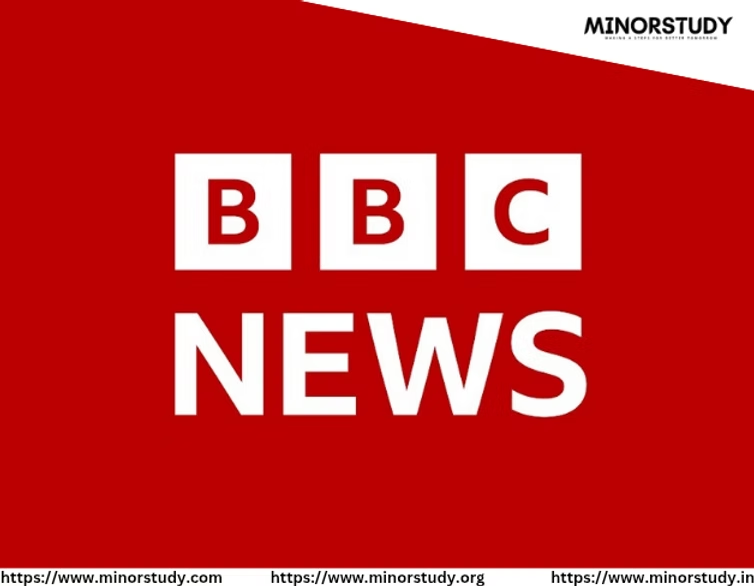10 Powerful Reasons Why the BBC Changed the World – A Deep Dive into Its Legacy
The British Broadcasting Corporation (BBC) is one of the most iconic and influential media organizations in the world. From crackling radio waves in the 1920s to global digital journalism today, the BBC has been a voice of integrity, depth, and global awareness for over a century. But how did this mighty broadcaster come into existence? What makes it so trusted and respected across generations?
- 📜 History of the BBC
- 🌍 BBC in Numbers
- 💡 Fascinating Facts about the BBC
- 🤔 FAQs about BBC
- Q1: What does BBC stand for?
- Q2: Is the BBC a government body?
- Q3: How is the BBC funded?
- Q4: Why is the BBC important globally?
- Q5: Can people outside the UK watch BBC content?
- 🎯 Significance of the BBC in Society
- 1. Global Journalism Standard
- 2. Voice of the Voiceless
- 3. Educational Lifeline
- 4. Crisis Communication
- 5. Cultural Preservation
- 6. Soft Power of the UK
- 🥳 Observance and Appreciation
- 🎁 Wishing the BBC on Its Legacy
- 🔍 Why the BBC Matters in Our Daily Lives
- 💬 Important Points Summary
- 🧭 Conclusion: A Global Beacon of Trust
- 🌐 Final Thought
This article explores the history, facts, timeline, FAQs, significance, and daily life impact of the BBC in a human-friendly tone—with one simple goal: to show how this media giant has touched our lives in more ways than we realize.
📜 History of the BBC
The BBC was officially formed on October 18, 1922, as a private company, the British Broadcasting Company Ltd., by a group of wireless manufacturers. It became a public corporation in 1927 through a Royal Charter.
It was established with a simple but profound aim:
“To inform, educate, and entertain.“
It became the world’s first national broadcasting organization and has grown to be the largest broadcaster in terms of employee count and output.
🧭 Key Milestones and Timeline
| Year | Event |
|---|---|
| 1922 | BBC founded; first radio broadcast aired |
| 1927 | Became a public corporation via Royal Charter |
| 1932 | First international broadcast (Empire Service, later BBC World Service) |
| 1936 | Began the world’s first regular TV service |
| 1940s | Played a vital role during WWII with morale-boosting broadcasts |
| 1955 | Faced competition from ITV – marking UK’s multi-channel era |
| 1980s-90s | Shift towards globalization and expansion of BBC World Service |
| 2000 | Launched BBC Online – a new era of digital journalism |
| 2010 | BBC iPlayer introduced for catch-up viewing |
| 2020s | Facing funding and trust challenges in a polarized digital world |
🌍 BBC in Numbers
🌐 Available in over 200 countries
🎧 Broadcasts in 40+ languages
📺 Reaches over 450 million people weekly
🏛️ Employs more than 22,000 people
📲 BBC Online: One of the world’s most visited news websites
💡 Fascinating Facts about the BBC
World’s First TV Broadcast: The BBC started regular high-definition TV broadcasting in 1936—years ahead of others.
The ‘Royal’ Connection: The BBC’s first monarch speech was by King George V in 1932.
BBC World Service: Funded by the UK government, it has become a soft power tool globally.
Archival Giant: Holds millions of hours of TV and radio content—an audio-visual history of the modern world.
No Ads in UK: BBC does not show advertisements in the UK. It’s funded by a license fee, not commercials.
BBC iPlayer: One of the most popular streaming platforms in the UK.
Public Trust: Despite modern criticisms, the BBC consistently ranks high in trustworthiness surveys globally.
Emergency Broadcasting: Played a critical role during World War II, 9/11, and COVID-19.
Educational Services: BBC Bitesize is one of the UK’s most popular learning resources.
Drama Powerhouse: From Sherlock to Doctor Who, BBC’s original dramas are global favorites.
🤔 FAQs about BBC
Q1: What does BBC stand for?
BBC stands for British Broadcasting Corporation.
Q2: Is the BBC a government body?
No. While the UK government grants it a Royal Charter, the BBC remains editorially independent.
Q3: How is the BBC funded?
Primarily through the television license fee paid by UK households.
Q4: Why is the BBC important globally?
It represents independent journalism, educational programming, and cultural storytelling at a global scale.
Q5: Can people outside the UK watch BBC content?
Yes! BBC World News, BBC iPlayer (limited), and BBC.com serve international audiences.
🎯 Significance of the BBC in Society
1. Global Journalism Standard
BBC is known for setting journalistic benchmarks—fairness, impartiality, and factual accuracy. Many journalism schools teach “BBC-style reporting” as a model.
2. Voice of the Voiceless
From conflict zones to rural areas, the BBC amplifies unheard voices and tells stories that commercial networks may ignore.
3. Educational Lifeline
Especially during the COVID-19 lockdown, BBC Bitesize and educational content helped millions of students globally.
4. Crisis Communication
In war, disasters, or political chaos, people worldwide turn to the BBC to get accurate, fast information.
5. Cultural Preservation
Whether it’s Shakespearean dramas, natural documentaries with David Attenborough, or radio theatre, BBC preserves cultural gems.
6. Soft Power of the UK
BBC is a non-military arm of diplomacy—shaping perception of Britain worldwide through soft storytelling and objective reporting.
🥳 Observance and Appreciation
While not celebrated as a public holiday, BBC anniversaries (especially the founding day – 18th October) are commemorated by:
Documentaries and retrospectives
Educational events in journalism schools
Online campaigns by media professionals
Tributes on social media with hashtags like #BBC100 and #ThankYouBBC
🎁 Wishing the BBC on Its Legacy
“Wishing the BBC continued success as the world’s lighthouse of truth, education, and entertainment.“
May it keep informing minds, warming hearts, and challenging perspectives for generations to come.
🔍 Why the BBC Matters in Our Daily Lives
We might not realize it, but the BBC quietly weaves into our daily routines:
Your morning news bulletin
Your child’s homework help
Your favorite drama series
Your reliable global news source
Your emergency update during crisis
It’s like a digital companion that educates, informs, and calms us—especially in chaotic times.
💬 Important Points Summary
📅 Founded in 1922, public since 1927
🎙 World’s first national broadcaster
🎓 Focused on education, news, and entertainment
📡 450+ million global reach
🌐 40+ languages, available worldwide
🚫 Ad-free in UK, funded by license fee
🎥 Creator of world-famous documentaries and dramas
🛡 Trusted during crises and political unrest
📘 Provides lifelong learning resources
🧠 A global symbol of journalism and media ethics
🧭 Conclusion: A Global Beacon of Trust
The BBC is more than just a media outlet. It’s a social institution, a cultural archive, a lifeline in emergencies, and a pillar of democratic journalism.
Whether you agree with its editorial choices or not, the truth remains:
The BBC has helped shape the world’s consciousness—through war and peace, politics and pandemics, drama and documentary.
It isn’t perfect, and it has its challenges, especially in the digital age. But its positive impact on humanity remains undeniable.
🌐 Final Thought
So next time you tune in to a BBC podcast, stream a nature documentary, or check global news—pause and remember:
“You’re not just consuming content. You’re participating in a global legacy built on truth, learning, and storytelling.”








